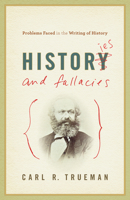Resurrectio Divi Quirini Francisci Baconi, Baronis de Verulam, Vicecomitis Sancti Albani: CCLXX Annis Post Obitum Eius, IX Die Aprilis Anni MDCXXVI. (Pro Manuscripto.)
Select Format
Select Condition 
You Might Also Enjoy
Book Overview
No Synopsis Available.
Format:Hardcover
Language:English
ISBN:135933386X
ISBN13:9781359333865
Release Date:May 2016
Publisher:Palala Press
Length:32 Pages
Weight:0.50 lbs.
Dimensions:0.3" x 6.1" x 9.2"
Customer Reviews
6 customer ratings | 5 reviews
There are currently no reviews. Be the first to review this work.
Bait and Switch: The (Futile) Pursuit of the American Dream Mentions in Our Blog

Remembering Barbara Ehrenreich
Published by Ashly Moore Sheldon • September 08, 2022
Barbara Ehrenreich never tired of asking the tough questions. The journalist and activist, who passed away on September 8, was the author of more than twenty books and dozens of articles and reviews. Learn about her life and legacy.








































